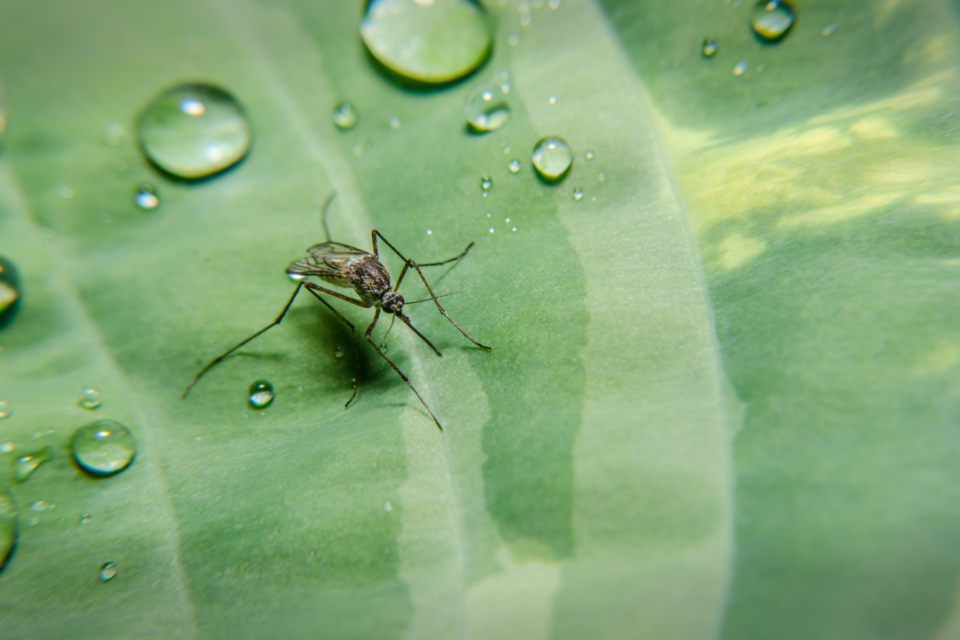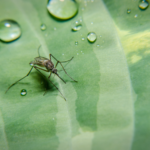Mosquitoes in Laramie County Test Positive, West Nile Virus Carriers

The City of Cheyenne has detected the first pools, or group, of mosquitoes to test positive for West Nile Virus (WNV), this year in Laramie County. The test was confirmed by the Wyoming State Veterinary Lab.
The infected mosquitoes were collected from traps near the Sun Valley area and near the Laramie County Community College, during the week of August 8th as part of the City’s ongoing mosquito surveillance efforts. Precautions should be taken across town as infected birds can carry the virus over long distances. No human cases have been reported this season. The last human case reported in Cheyenne was in 2017. “This is typically the time of the year we expect to see a rise in West Nile Virus activity, and these positive mosquito pools confirm that,” said Jennifer Escobedo, Supervisor, Cheyenne-Laramie County Health Department.
Most mosquitoes do not test positive for disease-causing viruses. However, a bite from a West Nile Virus-infected mosquito can cause serious illness, and in some cases, death. Although a person’s chances of getting sick are small, those aged 50 and older are at the highest risk for serious illness. Not everyone infected with West Nile Virus will become ill. However, West Nile can cause serious complications, including neurological diseases, and can also cause a milder flu-like illness, including fever, headache and body aches, nausea, and occasionally a skin rash and swollen lymph glands. If you think you have symptoms of West Nile Virus, see your doctor right away.
Mosquitoes lay their eggs in standing water. The eggs hatch into larvae that develop in the water for 7 to 10 days before emerging as adult mosquitoes that fly and bite. Many types of mosquitoes, including those that can spread disease, lay their eggs in items around the home, such as in birdbaths, unused flowerpots, discarded tires, and even bottle caps, as well as in small ponds or other bodies of stagnant water. “The Health Department along with Cheyenne Weed & Pest will continue to visit all known mosquito breeding sites, including sites near these positive mosquito pools. Larval control activities will continue throughout the summer,” said Jennifer Escobedo.
The professionals with Cheyenne Weed and Pest and the Cheyenne-Laramie County Health Department’s Mosquito Control Program are doing their utmost to protect us all. We ask that you do your part in checking your property to eliminate any standing water where mosquitos could breed.
Cheyenne Weed and Pest has initiated Ultra Low Volume (ULV) truck spraying in areas with elevated numbers of mosquitoes that can transmit West Nile Virus. These trucks will pass through neighborhoods and recreation areas after sunset. You may see a strobe light and hear a small equipment motor as they pass, but there is no reason to be alarmed. More information on ULV truck spraying can be found on the CDC website.
The best and most effective mosquito control begins in your yard. Eliminating standing water is the first step in reducing mosquito breeding:
- Check your property for ANY items that can hold water. Anything you choose to keep outside, such as kids’ toys, buckets, wading pools, canoes, and wheelbarrows, should be flipped over when not used to prevent them from collecting any water.
- Drill holes in the bottoms of recycling containers and remove any discarded tires.
- If you have a swimming pool or spa that is not in use, drain the water off the cover or treat the standing water with Mosquito briquettes, and post accordingly. The briquettes are available from the Health Department, at 100 Central Ave, Monday – Friday while supplies last. Call (307) 633-4090 or e-mail [email protected] to arrange a pickup.
- Tightly cover water storage containers (buckets, cisterns, rain barrels) so that mosquitoes cannot get inside to lay eggs. Use wire mesh with holes smaller than an adult mosquito for containers without lids.
- Use an outdoor flying insect spray where mosquitoes rest. Mosquitoes rest in dark, humid areas like under patio furniture or under the carport or garage. When using insecticides, always follow label instructions.
- If you have a septic tank, repair cracks or gaps. Cover open vent or plumbing pipes. Use wire mesh with holes smaller than an adult mosquito.
- Make sure that roof gutters drain properly, clear vegetation and debris from the edges of ponds, and remove leaf debris from yards and gardens.
To reduce your risk of being bitten, use the 5D method by following these steps:
- DUSK & DAWN-Stay indoors when mosquitoes are more active.
- DRESS – Cover up as completely as possible. Wear shoes and socks, long pants, and a long-sleeved shirt when outdoors for long periods or when mosquitoes are more active.
- DRAIN – reduce the amount of standing water in or near your property by draining and/or removing it. Mosquitoes may lay eggs in areas with standing water.
- DEET- Use mosquito repellent, which should always be applied according to label directions. Do not use repellent on babies younger than 2 months old. Do not use products containing oil of lemon eucalyptus (OLE) or para-menthane-diol (PMD) on children younger than 3 years old.
To learn more, call the Health Department at 307-633-4090 or visit the West Nile page.


